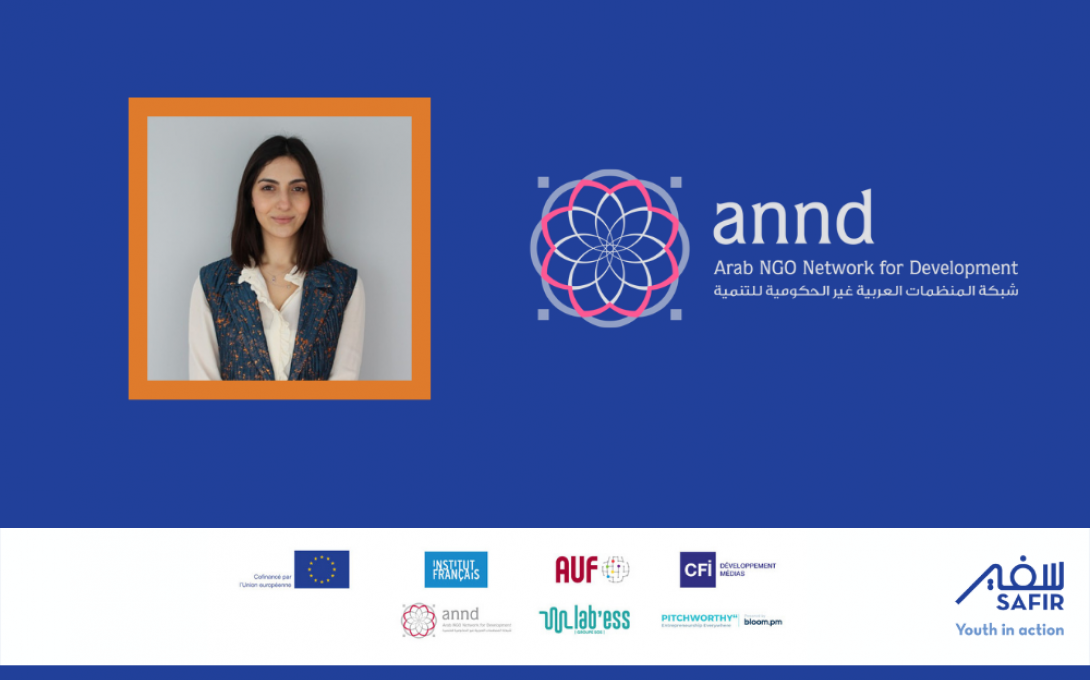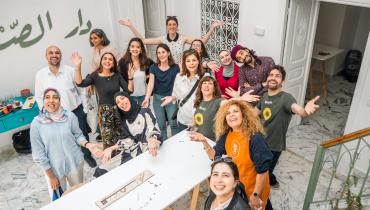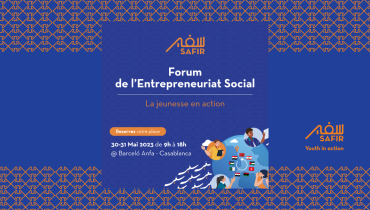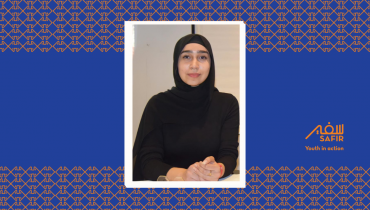3 questions to ... Diam Aboudiab, Safir program manager at the ANND

→ Can you briefly introduce ANND and its missions ?
The Arab NGO Network for Development (ANND) is an independent, democratic and civil network that operates in 12 Arab countries and covers a wide variety of socio-economic issues. ANND aims to strengthen the capacity and role of civil society (CSO) organisations in advocacy and lobbying in the field of economic and social policy-making in the Arab region, reinforce the space available for civil society organisations participation in these fields, and promote and develop knowledge products related to the different roles of civil society.
→ As a member of Safir partners consortium, the ANND is in charge of the activities dedicated to advocacy.
The 21 civil society organisations selected in Fall 2020 began a training that spanned over 5 months, made up of workshops around the SDGs and the 2030 agenda. Can you tell us more details about these 5 months of training ?
After the selection of the 21 civil society organizations, we set up two validation sessions, which aimed to assess participants’ knowledge in advocacy, Agenda 2030 and other development concepts. The results indicated the need to organize a series of introductory sessions on the developmental thematic priorities.
Therefore, five preliminary sessions were planned between February and June 2021: the first two tackled broad development concepts including Millenium Development Goals, Sustainable Development Goals and Agenda 2030.
Responding to the interest of participants in the monitoring of the SDGs through indicators, we dedicated the third session to entirely address this technical theme.
Session four looked at the link between SDGs and Human Rights, and the last one, in June, discussed the role of civil society in Agenda 2030.
These five sessions set some baseline for the 10 training of trainers sessions that took place between July and September 2021. Most of the participants were very engaged, and prepared well for the sessions, either in groups or individually. The participants successfully used the Thinkific online platform where all of the training materials were made available. They were passionate about many issues discussed during the sessions, mostly the ones directly linked to their areas of work, or political and social contexts in the Arab countries, such as social protection, health and Covid-19, and advocacy.
→ What was the most challenging aspect of this training ?
The implementation of such a lengthy training process in virtual format has been very challenging. Regular follow-ups and lengthy sessions were needed to get everyone equally involved and to reflect a common understanding of the training material (toolkit) on one hand, and to encourage active engagement of all participants on the other.
We organized over 15 three-hour training sessions and group works to mitigate the challenges of the virtual world and we developed a whole e-learning system to facilitate participants’ commitment and provide them with opportunities to learn at their own pace.
The feedbacks we got from the CSO’s were very encouraging about the sessions, despite difficulties of the virtual format.
→ You have worked on the production of a “toolkit”, intended to be used by the 21 civil society organisations in their support for young people who have been selected at the end Summer 2021. What does this toolkit contain ?
At ANND, we tried to develop a very detailed and comprehensive toolkit for the benefit of Arab Civil Society Organisations that are working in the field of development and/or focused on advocacy. This toolkit briefly includes the following:
1) one guide and manual on advocacy
2) one guide and manual on the link between human rights and SDGs
3) an extensive Sustainable Development Goals guide including two modules, the first introduces Agenda 2030 and SDGs and the second provides 17 individual overviews of SDGs, including definitions, targets, indicators, critics, a link to the human rights perspective and sample exercises.
Almost all SDGs need to be adapted to the particular national context, and this is something we emphasized upon throughout the whole training process.
What we offer in the toolkit is more of the generic understanding of SDGs, but every CSO or development actor needs to tailor the training content according to their local and national contexts. For instance, questions on poverty, education, gender, decent labor, environmental issues, etc. have different perspectives and challenges in each country of the region, and these links should be made clear.







